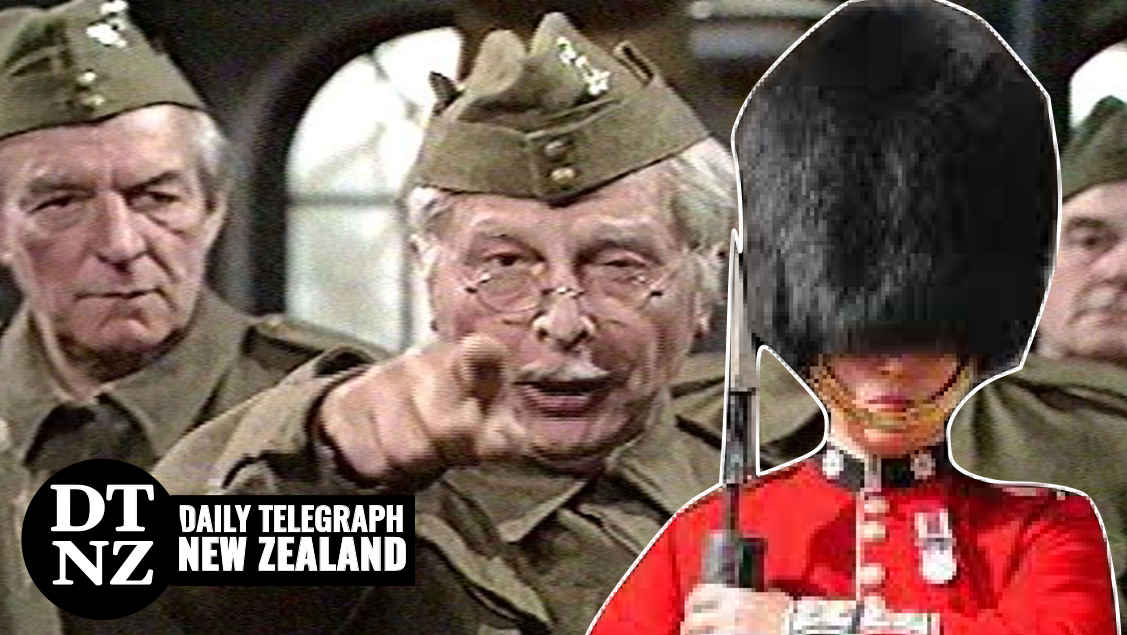NATO’s plan to vastly increase its forward force is wishful thinking, and the UK’s struggle for military relevance is a perfect case in point.
The secretary general of the North Atlantic Treaty Organization (NATO), Jens Stoltenberg, recently announced the US-led military bloc’s goal of expanding its so-called ‘Response Force’ from its current strength of 40,000 to a force of more than 300,000 troops. “We will enhance our battlegroups in the eastern part of the Alliance up to brigade-levels,” Stoltenberg declared. “We will transform the NATO Response Force and increase the number of our high readiness forces to well over 300,000.”
The announcement, made at the end of NATO’s annual summit, held in Madrid, Spain, apparently took several defense officials from the NATO membership by surprise, with one such official calling Stoltenberg’s figures “number magic.” Stoltenberg appeared to be working from a concept that had been developed within NATO headquarters based upon assumptions made by his staffers, as opposed to anything resembling coordinated policy among the defense organizations of the 30 nations that make up the bloc.
Confusion is the name of the game at NATO these days, with the alliance still reeling from last year’s Afghan debacle and unable to adequately disguise the impotence shown in the face of Russia’s ongoing military operation in Ukraine. The bloc is but a shadow of its former self, a pathetic collection of under-funded military organizations more suited for the parade ground than the battlefield. No military organization more represents this colossal collapse in credibility and capability than the British Army.
Even before the current Ukraine crisis kicked off, the British military served more as an object of derision than a template of professionalism. Take, by way of example, the visit of UK Defense Secretary Ben Wallace to Zagreb, Croatia in early February 2022. Croatian President Zoran Milanovic accused the British of trying to incite Ukraine into a war with Russia, as opposed to trying to address Russia’s concerns over the existing European security framework. Wallace flew to Zagreb for consultations, only to be rebuked by Milanovic, who refused to meet with him, noting that he only met with the defense ministers of superpowers, adding that “the UK has left the EU, and this gives it less importance.”
But London keeps putting a brave face on a sorry reality. Take, for example, the offer of written security assurances to Sweden and Finland made by British Prime Minister Boris Johnson. These pledges were designed to bolster the resolve of the two Nordic nations as they considered their applications to join NATO.
But there was no substance to the British offer, if for no other reason than the British had nothing in the way of viable military capability to offer either the Swedes or the Finns. Even as Johnson proffered the proverbial hand of assistance to his newfound Nordic allies, the UK Ministry of Defense was wrestling with planned force reductions that would see the British Army cut from its current “established strength” of 82,000 to 72,500 by 2025 (the actual strength of the British Army is around 76,500, reflecting ongoing difficulties in recruitment and retention.)
Even these numbers are misleading – the British Army is only capable of generating one fully combat-ready maneuver brigade (3,500 to 4,000 men with all the necessary equipment and support). Given the reality that the UK is already on the hook for a reinforced battalion-sized “battlegroup” that is to be deployed to Estonia as part of NATO’s so-called enhanced Forward Presence (eFP) posture (joining three other similarly-sized “battlegroups” fielded by the US in Poland, Germany in Lithuania, and Canada in Latvia), it is questionable whether the British could even accomplish this limited task.
Last month’s deployment to Estonia of a battlegroup comprised of the 2 Rifles infantry regiment underscores the pathos that defines real British military capability. The 2 Rifles Battlegroup includes the three infantry companies and one fire support company integral to the unit, along with supporting artillery, engineering, logistic, and medical elements. France and Denmark provide a company-sized unit to the British-led battlegroup on an alternating basis. Altogether, the British battlegroup comprises some 1,600 soldiers, and is fully integrated within the Estonian 2nd Infantry Brigade.
Given what we now know about the reality of modern warfare, courtesy of the ongoing Russian operation in Ukraine, the British battlegroup would have a life expectancy on an actual European battlefield of less than a week. So, too, would its allies in the Estonian 2nd Infantry Brigade. First and foremost, the units lack any sustainability, both in terms of personnel and equipment losses that could be anticipated if subjected to combat, or the basic logistical support necessary to shoot, move, or communicate on the modern battlefield. Artillery is the king of battle, and the British and Estonians are lacking when it comes to generating anywhere near enough tubes to counter the overwhelming fire support expected to be generated by any hostile Russian force.
Stoltenberg’s hypothetical 300,000-strong Response Force envisions the existing battlegroups to be expanded to brigade-sized formations, ironically tasking the British to generate more combat power at a time when it is actively seeking to reduce its overall manpower levels. While the British may be able to scrape enough substance from the bottom of the barrel, so to speak, to accomplish this projected reinforcement, there would literally be nothing left to back up Boris Johnson’s bold offer of substantive military assistance to Sweden and Finland, leaving the British prime minister looking more like the captain of the Titanic after it hit the iceberg, issuing directives and acting as if his words had any impact, all while his ship is sinking.


Dear Mr Ritter
Regarding your concern about the British Army reduction in personal, leaving the force ineffectual. My understanding is the military budget has increased annually and at a greater percentage of GDP.
Focusing on latest technologies of equipment, rather than people. Example …
2 new state of the art aircraft carriers with latest American attack and missile carrying aircraft. Latest army weaponry,
Latest satellite surveillance etc.
I think you might want to focus on the capabilities of the NZ defence force before publishing a badly researched critique of the UK.
You can see the little strength of the Dad’s Army exposed in the propaganda and lies of its newly appointed Chief of Defence Staff Tony Radakin. Such an idiot.
https://m.youtube.com/watch?v=P4FhmOpsId8
Russia is winning and NATO proxy war is a disaster. Instead of facing reality and managing the conflict, he relies on propaganda like a politician. Read the comments on this Big Bullshit Corp video in particular.
On a pro rata basis one British solider is actually worth four Americans and ten Europeans. The fact is Britain is more of a force to be reckoned with – equipped with 2 para battalions and two SAS rent’s beside 2 RM commando arms and serious support in MLSRs and Artillery – It is true that like all NATO forces Britain has a reduced Armoured Divisional strength but with Arctic warfare brigades in Norway supporting Troops in Estonia – from 7th armoured – plus div supports the poorly trained and equipped Russians could and should be contained the Apache air attack helicopter support from army air corps and raptor support from RAF and or RN sources would and could within hours provide the air cover that would change the battle field.
The USA and UK troops are used to 20 years of working together in battle field situations so NATOs major players are much better off than France – dependant on national service and Germany a smaller regular army. Numbers are subjective the Services do have retention problems because of the way the world is today but look at NZ – there is not any fighter air cover ( a disgrace considering NZ fighter pilot history from WWII – for the Army and no air arm for the Navy, there is only supply support capabilities from the air forces ageing helicopter force which is non-combative and moving the surveillance fleet to bombers is pointless given likely Chinese air fighters. The Army has limited strength and could not defend the North or South Island from any invading force, our SAS is NZ only fighting arm capable of taking the fight to any invaders but without support they can only do so much the Navy has good vessels but they are vulnerable to air attack and submarine attack. And China out numbers ten to one. Perhaps NZ would like the HMS Prince of Wales -aircraft carrier group to patrol the pacific and give them protection just as we needed US marines in WWII.
When criticising the British army remember this as the middle service the Army has often been in the reduced numbers situation, Waterloo, Mons, western front 1914, Middle East 1915-18, Dunkirk , Battle of Britain 1940 and Falklands 1982 but on each occasion the men have held the line and in any critical analysis of the European armies in 1914 the small BEF held back and pushed into a trench war a totally larger German military invasion such confidence was held by the German high command ( much like this journalist) that they considered the BEF as contemptible. They soon realised the error of their ways and had crazy losses forcing the western fronts trench lines for 4 more years allowing the allies to win (remember Germany had a Hugh Axis alliance) – Hitler believed that the British army would be crushed on the beaches at Dunkirk , Goring stated the small airforce in Britain of allied airmen, common wealth, defeated counties (French/Poles etc) and empire countries would bicker crumble and fall to the might of his Luftwaffe at 15 planes to one . Coming together and fighting is something Britons and Commonwealth countries can do well and we recall that spirit each ANZAC day whether Indian , Irish, South African, Fijian, Burmese, Scots, English, Welsh, Aussie or Canadian we are all united in a tradition of fighting above our real weight and this is no different today London has not fallen, We don’t need to provide the Euro force support to NATO we give two modern large aircraft carrier groups to NATO, provide an active nuclear deterrent that defends all commonwealth countries whether Nuke free or not (the MAD option) that works, have army units in the field with support arms of a superior standard including artillery, medical support and engineering. So do we worry about politicians who have no military skill, knowledge and care more for the social welfare bill – hell yeah – but at the end of the day a green light constitutes an order to jump and there is no choice when the ballon goes up.